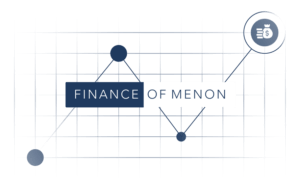Every start-up employee dreams about the big payoff: the moment when the company they’ve dedicated countless hours to achieves a multi-million dollar exit, and their equity stake turns into significant financial gain. However, without proper tax planning, a significant portion of that windfall could be lost to taxes. One essential strategy that every early employee needs to know about is the 83(b) election.
Understanding how the 83(b) election works can save you thousands in taxes and prevent unnecessary stress, especially when it comes to your equity. Let’s dive into how this election can make a significant difference in your financial outcome.
First, The Basics of the 83(b) Election
When you receive equity as part of your compensation, especially in the form of stock that vests over time, you typically pay taxes as the stock vests. The default tax treatment can result in significant tax liabilities at each vesting date, especially if the stock’s value has increased since the grant date. Here’s where the 83(b) election comes in.
The 83(b) election allows you to elect to pay taxes on the total value of your equity on the grant date, rather than waiting until it vests. By doing this, you lock in the current fair market value (FMV) as the amount on which you’ll pay ordinary income tax. If the stock’s value increases over time, you won’t owe any additional tax until you sell the stock, potentially at favorable long-term capital gains rates.
Key Points To Illustration
Let’s break down the differences with and without the 83(b) election using the illustration above:
- Without 83(b) Election:
- Grant Date: No tax is due at the time of the equity grant.
- Vest Date(s): You will owe ordinary income tax on the difference between your purchase price and the FMV at each vesting date. This could result in a substantial tax liability if the stock has appreciated significantly. This assumes you exercise on vest date.
- With 83(b) Election:
- Grant Date: You pay ordinary income tax on the difference between your purchase price and the FMV on the grant date. This amount is typically lower since the company is early-stage and the stock value is lower.
- Vest Date(s): No tax is due at the vesting dates, meaning you won’t face the stress of a tax bill before your equity is liquid. This assumes you exercise on vest date.
Why the 83(b) Election Can Be a Game Changer
By electing 83(b), you effectively control the timing of your tax liability and potentially minimize the amount you owe. If your company grows significantly, the difference between the FMV at the grant date and the vesting dates could be enormous, translating into substantial tax savings.
Moreover, by paying the tax upfront on a lower valuation, you avoid the risk of paying taxes on illiquid stock. This is especially crucial because, without 83(b), you could end up with a large tax bill without any cash from selling the stock to pay it.
Take Action Early
If you’re an early employee at a start-up and have been offered equity, you should seriously consider the 83(b) election. However, this decision must be made within 30 days of receiving your equity grant. Consult with a tax professional to understand how this election fits into your overall financial plan and to ensure you meet the deadline. F2ON providers offer Taxation advisory and filing services. Explore here
The 83(b) election is a simple yet powerful tool that can significantly impact your financial outcome in a successful start-up. Don’t let a lack of tax planning diminish the value of your hard-earned equity.
Taking advantage of the 83(b) election is one strategy to ensure you maximize the benefits of your equity compensation. Understanding this, along with other financial planning strategies, is essential as you navigate your career in the start-up world. Speak to us at Finomenon Investments and get a free review if your Equity Compensation and Workplace Benefits.
Disclaimer: Nothing here should be considered an investment advice. All investment carry risks, including possible loss of principal and fluctuation in value. Finomenon Investments LLC cannot guarantee future financial results.
Image Credit: Michael Cullins, CPA.
Image Credit: Images used are not created by Finomenon Investments, please share the source and author of the illustrator if you know to help give them credit.





